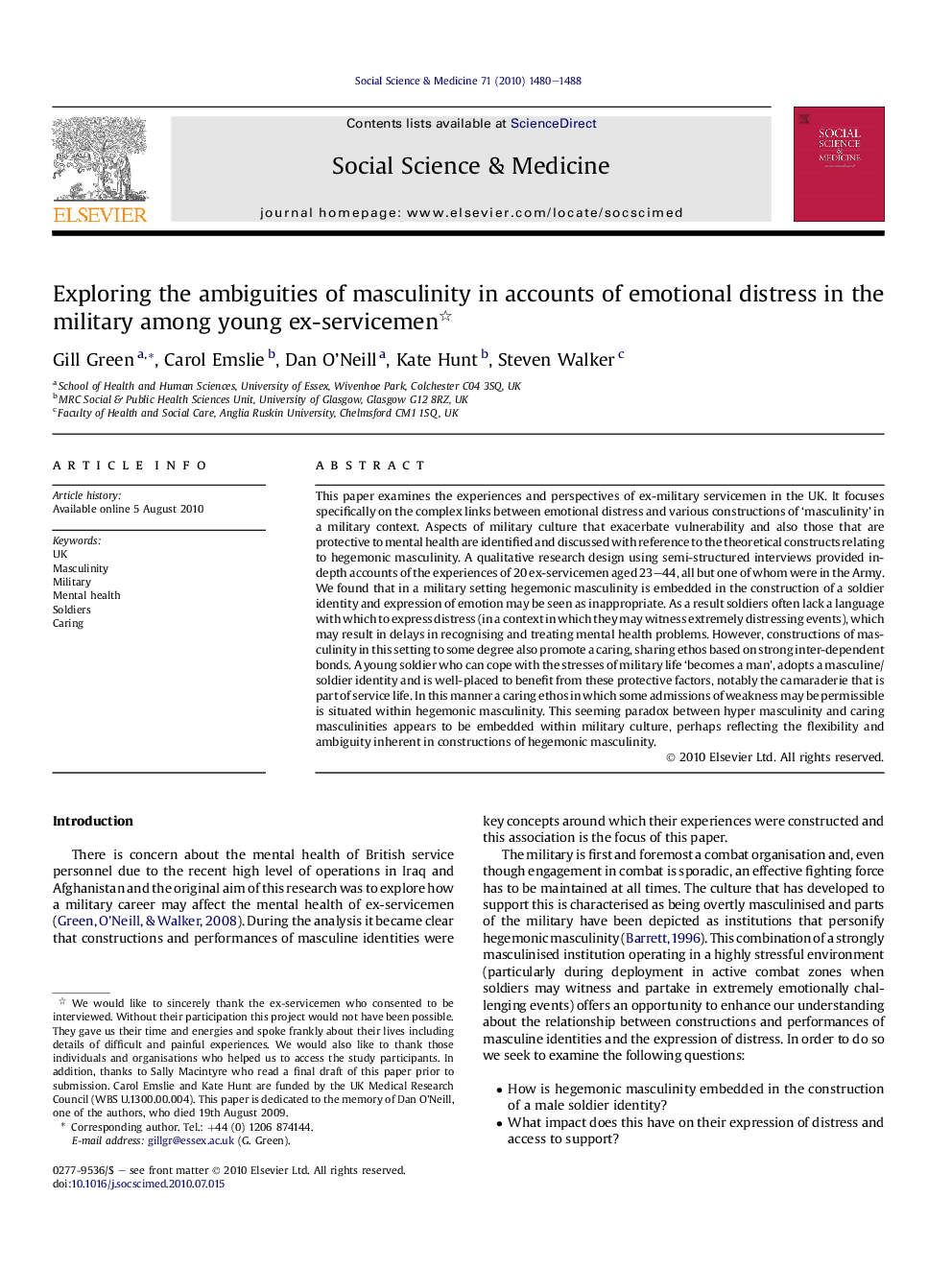| کد مقاله | کد نشریه | سال انتشار | مقاله انگلیسی | نسخه تمام متن |
|---|---|---|---|---|
| 953064 | 927564 | 2010 | 9 صفحه PDF | دانلود رایگان |

This paper examines the experiences and perspectives of ex-military servicemen in the UK. It focuses specifically on the complex links between emotional distress and various constructions of ‘masculinity’ in a military context. Aspects of military culture that exacerbate vulnerability and also those that are protective to mental health are identified and discussed with reference to the theoretical constructs relating to hegemonic masculinity. A qualitative research design using semi-structured interviews provided in-depth accounts of the experiences of 20 ex-servicemen aged 23–44, all but one of whom were in the Army. We found that in a military setting hegemonic masculinity is embedded in the construction of a soldier identity and expression of emotion may be seen as inappropriate. As a result soldiers often lack a language with which to express distress (in a context in which they may witness extremely distressing events), which may result in delays in recognising and treating mental health problems. However, constructions of masculinity in this setting to some degree also promote a caring, sharing ethos based on strong inter-dependent bonds. A young soldier who can cope with the stresses of military life ‘becomes a man’, adopts a masculine/soldier identity and is well-placed to benefit from these protective factors, notably the camaraderie that is part of service life. In this manner a caring ethos in which some admissions of weakness may be permissible is situated within hegemonic masculinity. This seeming paradox between hyper masculinity and caring masculinities appears to be embedded within military culture, perhaps reflecting the flexibility and ambiguity inherent in constructions of hegemonic masculinity.
Journal: Social Science & Medicine - Volume 71, Issue 8, October 2010, Pages 1480–1488